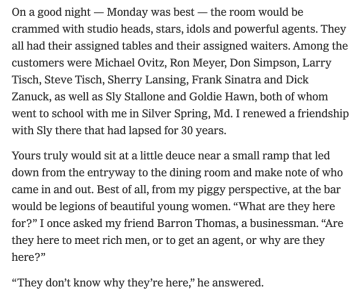Alexander Payne at Middleburg Film Festival on 10.21: “You want your movie to be as short as possible. There are too many damn long movies these days…if your movie’s three and a half hours at least let it be the shortest possible version of a three half hour movie…like The Godfather Part II [and] The Seven Samurai are super tight three and a half hour movies and they go by like that. So there’s no ipso facto judgment about length.”
I’m not saying the director of The Holdovers was specifically refererring to Killers of the Flower Moon when he said the above, but is there anyone on the planet earth who didn’t immediately presume that he was referring to Martin Scorsese‘s elephantine murder saga?
The truth is that relatively few three-hour-plus movies are regarded as painfully slow. Most of them work on their own sprawling terms.
I wouldn’t have said a word if Michael Mann‘s 170-minute Heat had been 10 minutes longer…hell, a half-hour longer! There’s a certain endless splendor to Sidney Lumet‘s Prince Of The City, which runs 167 minutes….it could have easily run 15 or 20 minutes more withut diminishment. The 227-minute Lawrence of Arabia is pure butter, pure icing, pure symphony…it never lags or drags, Ditto the 197-minute Spartacus.
Some three-hour-plus films, however, contain drop-out moments — plot triggers that encourage a sudden lack of interest or prompt viewers to space out or otherwise disengage.
For me, the drop-out moment in Killers of the Flower Moon begins at roughly the half-hour mark…I’m sorry but when I realized I was more or less stuck with Leonardo DiCaprio‘s dumb-as-a-fencepost Ernest Burkhart and Robert DeNiro‘s drawling, tedious and endlessly repetitive King Hale…when I realized I would be hanging with these fucking dolts for the next three hours I fell into an increasingly deep depression. Not during the first viewing, mind (I was moderately engaged or at least respectful of the film when I saw it in Cannes) but when I saw it for a second time last Thursday night.
Part One of Gone With The Wind is fairly riveting — the drop-out moment comes when Scarlett O’Hara marries Frank Kennedy, or roughly 35 minutes into Part Two. It’s all downhill from then on.
The Barry Lyndon drop-out moment comes when Ryan O’Neal blows pipe smoke into the face of Marisa Berenson. It marks the beginning of Lyndon‘s “dead zone,” which I explained in detail nearly seven years ago.
The drop-out moment in the 212-minute Ben-Hur comes after Judah Ben-Hur (Charlton Heston) vanquishes the evil Messala (Stephen Boyd) in the climactic chariot race. Ben-Hur is basically a betrayal-and-revenge movie, and once Judah’s revenge has been achieved there is no more movie. Nobody cares about Judah’s sisters being cleansed of leprosy or Judah being purged of his anger and bitterness by the blood of the crucified Jesus Christ. It doesn’t fucking matter!…nobody cares!…the post-chariot-race stuff is pure denouement.
Put another way, life is hard no matter how you slice it, and, to quote John Lennon, “there aren’t no Jesus gonna come down from the sky.”



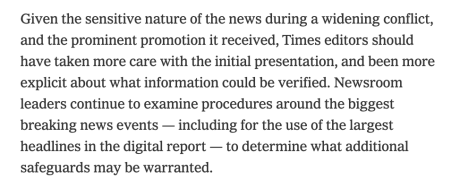
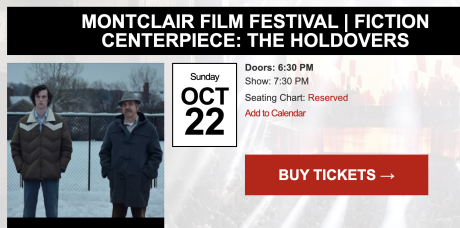

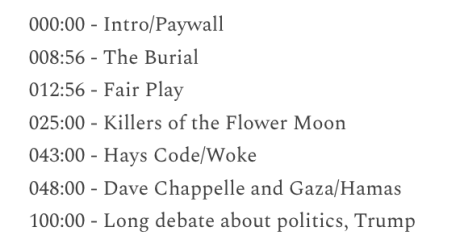

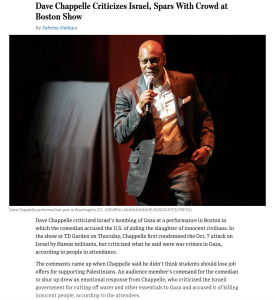



 / >
/ >